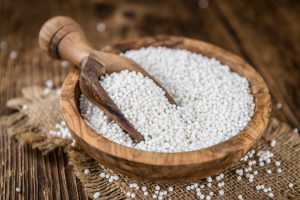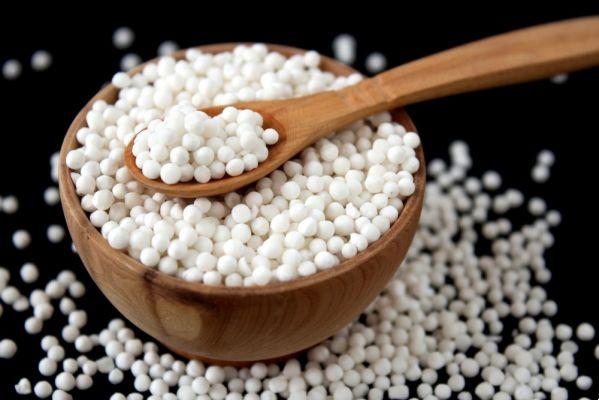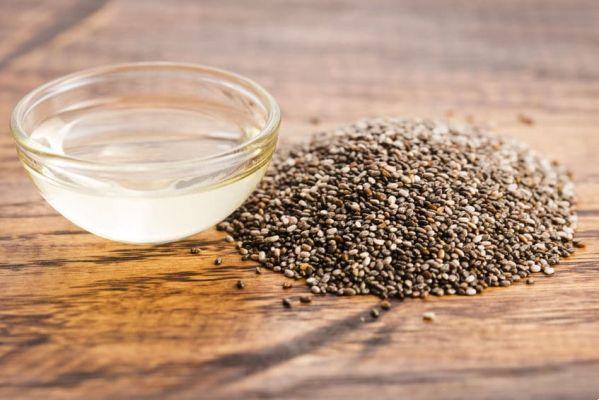The thyroid gland is located in the neck, just below the Adam's apple, and is responsible for regulating the functioning of various organs of the body, such as the heart, brain, liver and kidneys, through the release of hormones. The gland plays a role in growth, weight and height regulation, memory, menstrual cycle and fertility, not to mention mood regulation and emotional stability.
Thyroid dysfunctions can happen at any age and are usually easy to detect and, with medical and nutritional monitoring, can be regulated and controlled with peace of mind.
Some of the most well-known irregularities of the thyroid gland stem from the decompensated production of hormones. If substances are produced in excess, they cause hyperthyroidism. In this case, it is also common for the gland to increase in volume – a phenomenon called goiter. On the other hand, some people suffer from insufficient hormone production, a condition called hypothyroidism.
In addition, there are also many cases of nodules in this gland. According to data from the Spanish Society of Endocrinology and Metabology, about 60% of the Spanish population have thyroid nodules, and more than 90% of the cases are benign tumors.
The cause of most nodules or hormonal changes is related to the aging of the gland and organic and genetic processes of the thyroid. However, the amount of iodine ingested can also influence irregularities.
In the case of hypothyroidism (that is, when the amount of hormones produced is below normal), the disease can arise from a severe lack of iodine in the diet. This is the most common type of thyroid hormone dysfunction, which appears in one in 10 women over age 65, according to the Thyroid Institute. In the case of hyperthyroidism (that is, when there is excess hormone production), excessive consumption of iodine can cause the disease.
As iodine deficiency can trigger the production of thyroid hormones, a law has already incorporated a certain amount of the nutrient in table salt sold in España a few years ago. This was already the first step towards a change in habits at the national level, but it is valid that everyone tries to maintain a balanced diet, paying attention to the consumption of iodine and nutrients such as zinc, selenium and omega-3, so that the incidence of problems in the thyroid continues to decrease.
Of course, medical and nutritional monitoring in cases of thyroid disease is very important, but, below, we list some foods and nutrients that can help in the regulation and control of the gland for patients with the most common type of dysfunction, hypothyroidism.
- Fish oil: Along the same lines as seaweed, fish oil is rich in iodine. Fish such as salmon, sardines and tuna are the most suitable in these cases, and the recommended consumption is 120 grams, three times a week.
-
Seaweed: These are rich sources of iodine and have a significant amount of selenium, both essential nutrients for hormone production.
-
Brazil Nuts: This oilseed is rich in selenium and omega-3 and helps in thyroid hormone production. Some nutritionists recommend the consumption of two to three nuts a day, which can be eaten crushed in salads, fruits, or other different preparations of your choice.

- Quinoa: This food is a great source of calcium, iron, magnesium, potassium, zinc and selenium. About two tablespoons a week are enough for a balanced diet.
-
Milk and dairy products: Milk and its derivatives are rich in calcium, vitamin D, A and iodine, some of the main nutrients for thyroid function.
-
Egg yolk: The yolk, despite having a not so high amount of iodine, is rich in vitamin-A, which is also important for thyroid hormone production.
-
Red meat: Red meats are rich in zinc and selenium, which help with hormone production. But, as it contains considerable amounts of saturated fat, it should be consumed in moderation. Ideally, three medium steaks a week are eaten.
-
Water: Finally, water is one of the most important items for the regulation and proper functioning of the body. The daily consumption of about 2 liters helps with metabolism, helps to get rid of swelling, fluid retention and also facilitates digestion and fights constipation.
Written by Giovanna Frugis from the Eu Sem Fronteiras team.
























